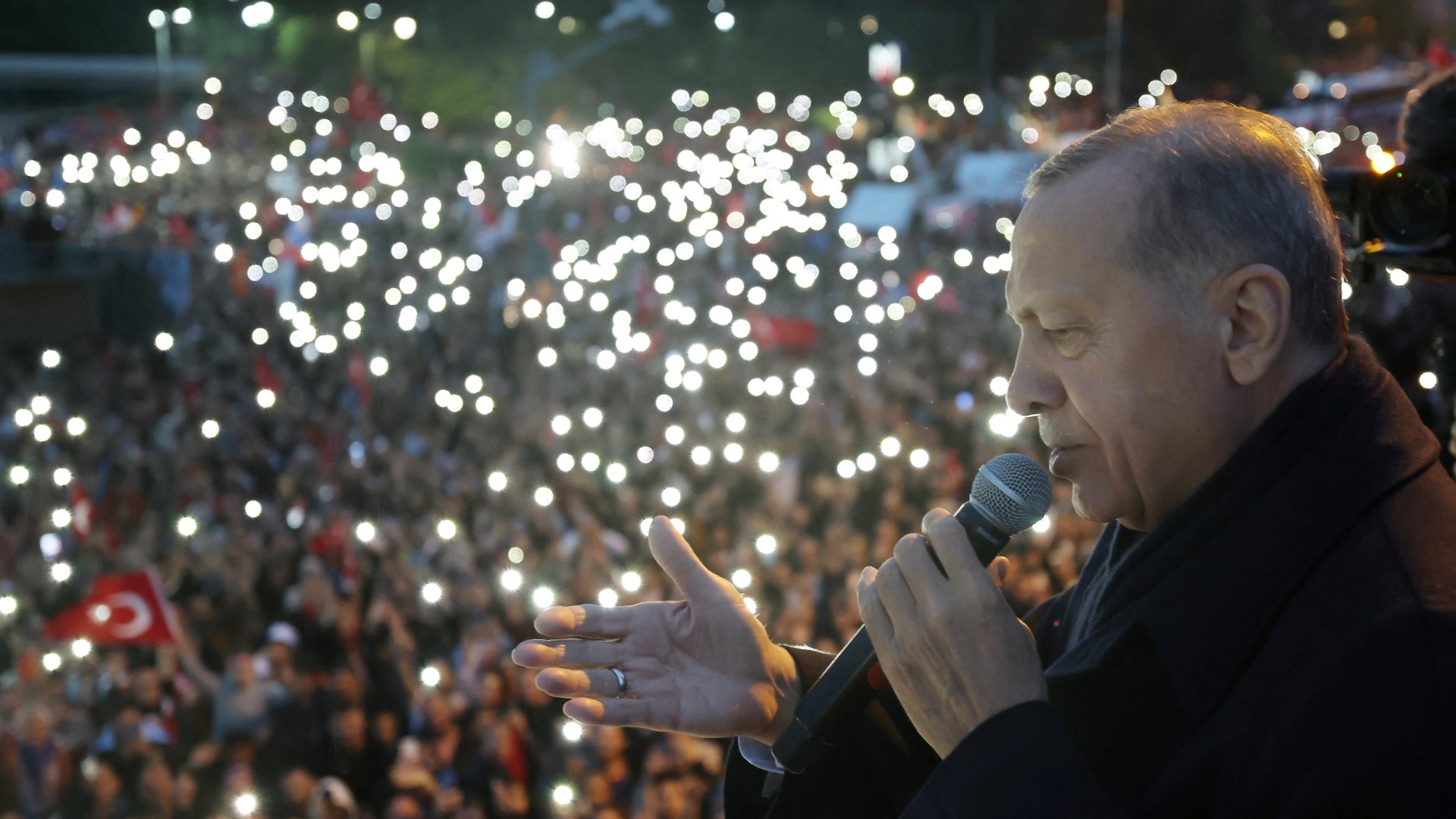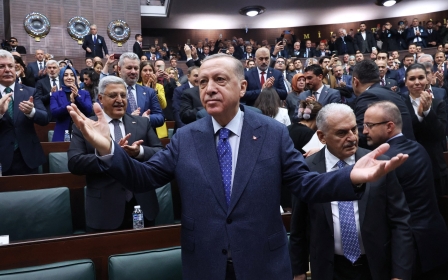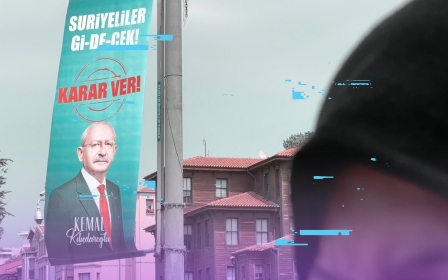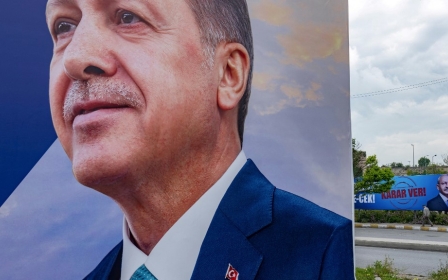Turkey elections: Erdogan defeats Kilicdaroglu and secures five more years in power
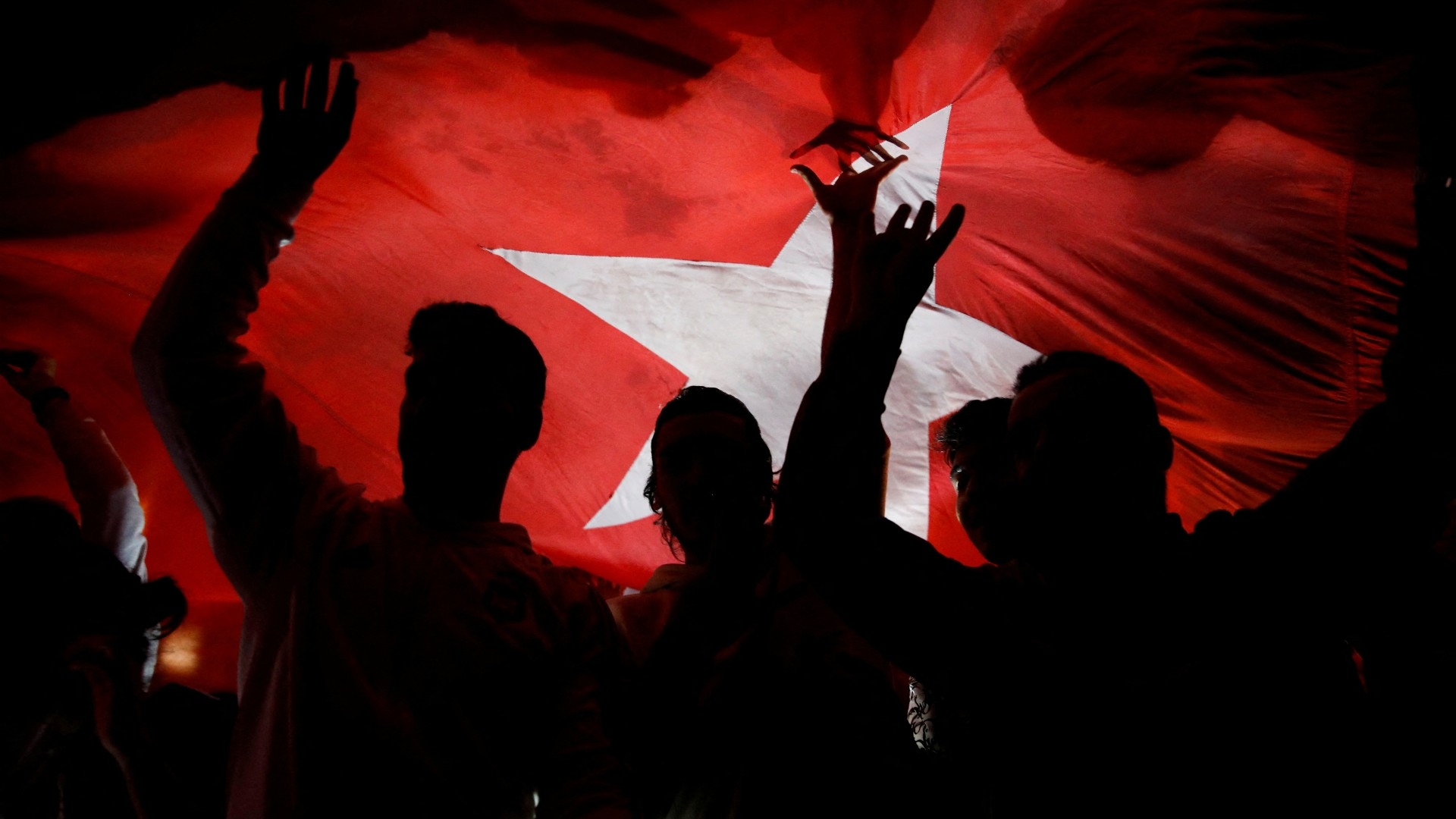
Ankara/Istanbul/London - Recep Tayyip Erdogan eased to a third term as Turkish president on Sunday, defeating his rival Kemal Kilicdaroglu in a closely watched run-off election.
With preliminary results putting Erdogan on 52 percent to Kilicdaroglu's 48, the leader of the ruling Justice and Development Party (AKP) greeted a crowd of supporters in Istanbul.
"The winner of this election is all the 85 million-strong Turkish nation," Erdogan said, adding that he had been given responsibility to rule for the next five years.
"We successfully completed the run-off elections. I thank my nation."
In televised remarks following his loss, Kilicdaroglu said: "This election clearly indicated that the nation has a real will to fight and change the autocratic government."
New MEE newsletter: Jerusalem Dispatch
Sign up to get the latest insights and analysis on Israel-Palestine, alongside Turkey Unpacked and other MEE newsletters
Though the 74-year-old's future is uncertain, the Republican People's Party (CHP) leader said: "I will continue my path."
As a huge crowd gathered outside Ankara's presidential complex, congratulations from Erdogan's allies on the international stage rolled in.
First up was Qatar’s emir, Tamim bin Hamad Al Thani, who congratulated "my dear brother Recep Tayyip Erdogan".
Russia's Vladimir Putin, Ukraine's Volodymyr Zelensky, France's Emmanuel Macron and Abdel Fattah el-Sisi, the Egyptian president who until recently was a chief regional enemy, were among those to follow.
With Erdogan's victory confirmed, the Turkish lira fell more than 0.5 percent to 20.05 to the US dollar. Turkey is suffering under a biting cost of living crisis, with markets unconvinced by Erdogan's dogma against interest rates, which has helped stoke inflation.
A smooth vote
Supreme Election Board chairman Ahmet Yener said the vote went ahead smoothly. The official Anadolu Agency put turnout at 84 percent, just a couple of percentage points below the first round on 14 May.
Cats, a lamb, a bride and a reportedly 113-year-old woman born in the Ottoman era added colour to polling stations throughout the day.
In Istanbul's Maltepe district, a CHP stronghold, voters were divided.
"Of course, we came again to vote for Kilicdaroglu, even though victory seems increasingly difficult," Ali, a 22-year-old university student, told Middle East Eye.
"At the very least, we want to show Erdogan that almost half of the country does not support his autocratic rule."
On the other hand, Betul Yilmaz, an Erdogan supporter, seemed happy at the prospect of another election win for the president.
"We need Erdogan to fight against terrorism, improve our country, and increase the production of local goods," she told MEE.
Failure to attract nationalists
For Kilicdaroglu, it was never meant to end this way.
Ahead of the 14 May presidential and parliamentary elections, several respected pollsters had him winning outright in a first round.
Kilicdaroglu had cobbled together an electoral alliance that consisted of his centre-left CHP and five right-wing parties called the Table of Six, and won the endorsement of the pro-Kurdish HDP.
It proved not enough, with Erdogan storming to a 49.5 percent victory in the first round, five points clear of Kilicdaroglu but failing to clear the 50 percent threshold for an outright win, prompting Sunday's run-off. Meanwhile, the president's ruling AKP and its allies won a majority in parliament.
During the run-off campaign, Erdogan's aggressive rhetoric cooled, while Kilicdaroglu appealed to Turkish nationalists with promises to repatriate all of the 3.7 million Syrian refugees in the country.
'The winner of this election is all the 85 million-strong Turkish nation'
- Recep Tayyip Erdogan
Yet Kilicdaroglu's appeals did not sway Sinan Ogan, the ultranationalist presidential candidate, who had won 5 percent of the vote and later endorsed Erdogan.
In the end, Ogan's voters appeared to be divided between both candidates in the second round.
Preliminary analysis suggests that Ogan's votes were runaways from both Erdogan and Kilicdaroglu, and they mostly went back to their more traditional candidate.
In AKP strongholds like Konya, Yozgat and Kayseri, the president increased his vote share by 3-5 percent.
Meanwhile, in CHP-dominated areas like Kirklareli, Edirne and Tekirdag, Kilicdaroglu increased his vote share by 3-4 percent.
Kurdish support driven away
Perhaps catastrophically for Kilicdaroglu was the large drop in turnout in Kurdish-dominated areas, which fell from 81.70 percent to 75.74.
The opposition candidate's increasingly Turkish nationalist statements and agreement with the right-wing Victory Party seemed to turn Kurdish voters away.
A resident of Diyarbakir, a Kurdish majority province in Turkey's southeast, said she was not voting because neither side had offered the Kurds anything.
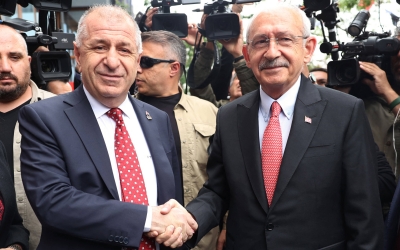
When asked whether her decision could help Erdogan in the race, the 25-year-old, who did not wish to reveal her name, said she didn't care.
"This does not concern me at all. In this system, the Kurds are already ignored. Let them fight their own. What they do is also none of my business," she told MEE.
Erdogan is already turning his eyes on the next electoral contest: municipal elections in March next year.
While asking supporters in Istanbul for their help in the 2024 polls, he warned that the CHP and its allies were "pro-LGBT".
Echoing the anti-LGBTQ rhetoric he pursued ahead of the first round, Erdogan said "LGBT cannot infiltrate" the AKP.
"No one can touch the family, and no one can use violence against women," he said.
Middle East Eye delivers independent and unrivalled coverage and analysis of the Middle East, North Africa and beyond. To learn more about republishing this content and the associated fees, please fill out this form. More about MEE can be found here.


